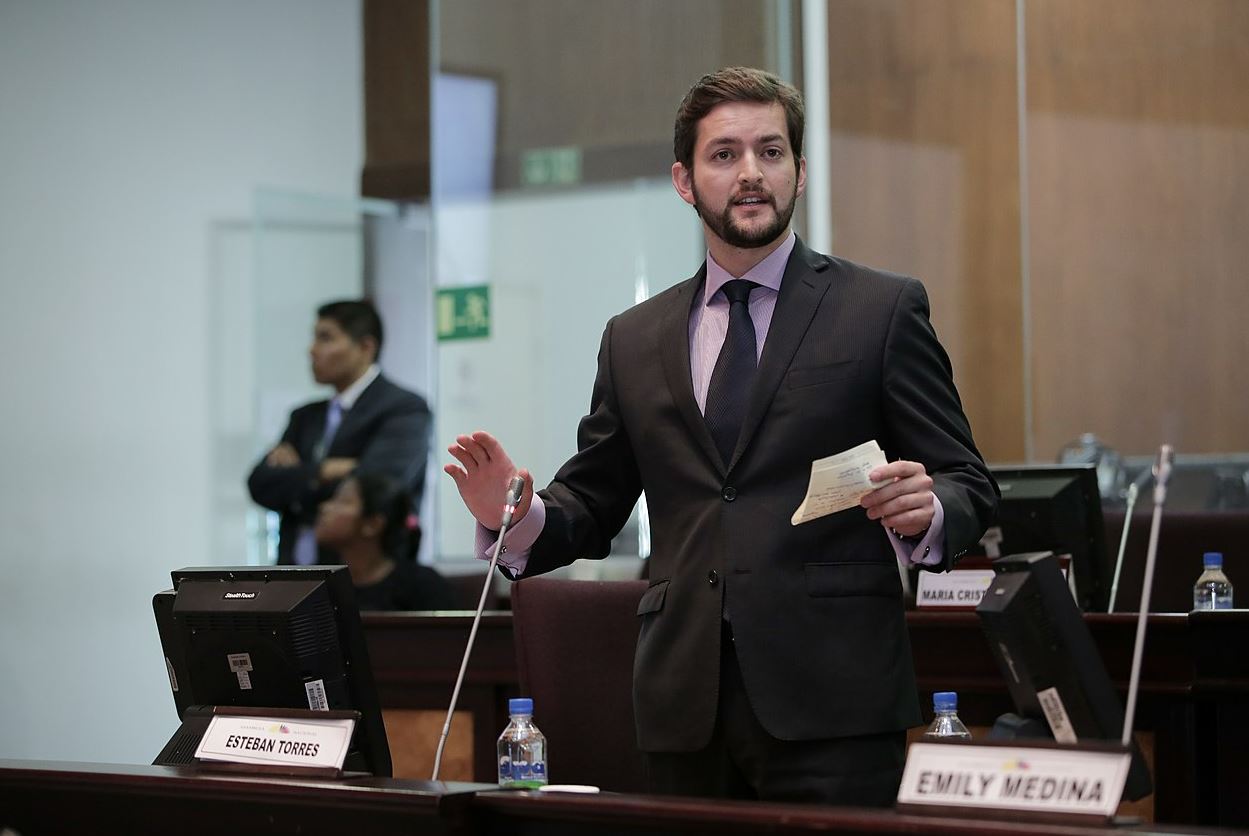Defending oneself against the crime plaguing the civilian population could become a reality in Ecuador.
The carrying and possession of firearms are back on the table for debate in the South American country’s legislative branch amid a prison crisis and the worst violence rate in the nation.
“Guns for what?” Fidel Castro once said in one of his first speeches upon taking power in Cuba, disarming the civilian population and making sure to quell any attempt of resistance against what later became an oppressive communist regime.
More than half a century later, the single party is still in power. Every authoritarian regime has acted in the same way. Ecuador is no exception.

Under the socialist government of Rafael Correa, Ecuadorians were stripped of the right to legitimate self-defense in 2009.
“Finally, the possession and carrying of weapons will be part of the axis of the national discussion among all the powers of the State,” exclaimed recently the legislator Esteban Torres Cobo, head of the Social Christian Party and promoter of self-defense for Ecuadorians.
La Gaceta de la Iberosfera contacted the parliamentarian -signer of the Madrid Charter- to know the feasibility of this reform and its application.
It is a legal instrument that would give Ecuadorians the right to defend themselves.
Since the existence of Ecuador as a nation, carrying arms has been legal, a historical tradition violated during the Correa regime.
Under the Spanish Crown system, for example, one had the right and the duty to be armed.
INTERVIEW
What does the bill consist of?
I presented in December 2020 the first reform to the 1980 arms law, which in some way developed the issue of arms in Ecuador, which has been in force since the foundation of Ecuador.
There has never been a constitutional or legal prohibition until now due to what happened since 2009.
A series of regulations at the level of the presidential decree and ministerial agreement prevented this right to the point that it is practically impossible for a citizen who meets the requirements established by law to have access to a means of defense.
Requirements should be to have no criminal record and to undergo a psychological examination.
If the person has aggressive or suicidal tendencies, they cannot have a weapon. In addition, they should be subjected to an examination of hours of theory and practice on when the gun can be used in case of need. That is my reform.
There are other reforms to the Integral Penal Code to establish the state of necessity, which establishes when a weapon can be used in self-defense to defend life, and the family.
It is the exception to the use of force. There must be some less strong regulations than the ones we have now.
Except in cases like cattle ranchers, there have been slightly less strong regulations. But that prevents them from renewing permits or obtaining weapons.
What is missing for it to be approved?
Political and institutional will. The Assembly is the one that should approve such a reform. But this subject is taboo for most political groups and even assembly members. That is why they prefer not to talk about it.
And I took advantage of this security round table convened by the president of the Assembly to discuss this issue. Because if I did not do it, I would continue to “pass by crouching” (an Ecuadorian expression that implies doing nothing).
Because nobody likes to talk, many think it is an issue presented in exchange for votes. Others are afraid; I don’t know why.
But the truth is that for it to be approved, the debate must first be opened in the commission. The debate has not been opened in the committee. And this then comes to the plenary and obviously has a vocation.
However, this has also been a pressure measure so that the government, with a single signature, can change and improve what is currently happening with weapons.
And I am referring above all to the presidential decree that prohibits or puts very extreme requirements for the issue of weapons. Or the inter-ministerial agreement that created total confusion – two big obstacles at the moment.
Do you believe this reform can reduce insecurity in the face of the delinquency experienced in Ecuador?
I think so. Understanding that insecurity is an integral problem. The issue of weapons is not a total solution to the problem of insecurity.
But it is a minimum contribution, I believe, so that people can defend themselves in their homes and businesses and generate what in economics is known as a positive externality that, through deterrence, forces a person to think twice before robbing a house or killing someone.
88% of crimes in Ecuador are committed with illegal firearms from the Amazonian border.
There are 60,000 to 70,000 guns registered in Ecuador, but criminals currently have five times more guns, from 350,000 to 400,000 guns.
Residential areas of Quito and Guayaquil are assaulted with assault weapons.
Brazil can be replicated, but sticking to the Ecuadorian experience is preferable.
I respect those who oppose the carrying of weapons – and they are in their right – look at the Ecuadorian experience.
How it was before civilian disarmament and how it is now. An old West will not be created. It is worrying what Ecuador is going through.
With information from Gaceta

